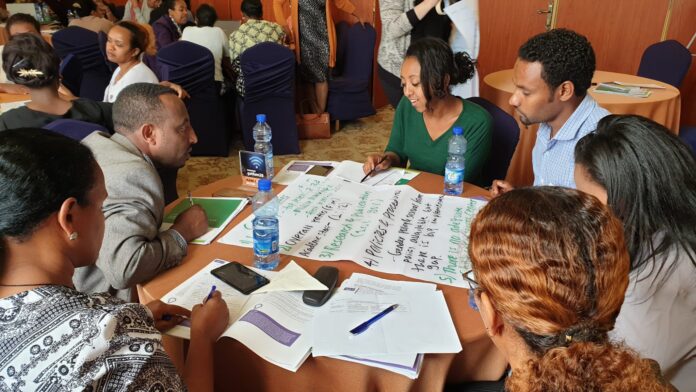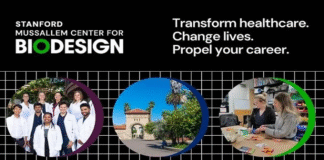A recent article by Shozi, B., & Thaldar, D. (2023) titled “Promoting equality in the governance of heritable human genome editing through Ubuntu: Reflecting on a South African public engagement study” published in The American Journal of Bioethics by Taylor & Francis found that participants of the public engagement study on Heritable Human Genome Editing (HHGE) in South Africa approved of using HHGE for serious health conditions.
“
South African participants endorse heritable human genome editing for serious health conditions, advocating equal access, rooted in Ubuntu ethic and responsibility for future generations. – Shozi, B., & Thaldar, D. 2023
This article explores the ethical and social implications of heritable human genome editing (HHGE) in the context of South Africa. It explores the views of South African participants in a public engagement study on HHGE, and how they relate to the concept of Ubuntu, an African philosophy of human interdependence and harmony. The article argues that public engagement is important for giving voice to African perspectives on the governance of new technologies and that Ubuntu is a relevant and influential concept in South African culture and politics. The study explores how the participants’ views were animated by the idea that future generations have a claim to these social goods, and how this claim can be ethically justified in the Ubuntu ethic, which emphasizes the interests of the community and the metaphysical connection among past, present, and future generations.
How the study was conducted
The authors employed a deliberative public engagement methodology, which involves engaging a group of participants in a facilitated discussion on a topic of public interest with the aim of eliciting informed and considered views from the participants. The study followed the model of deliberative public engagement developed by the Nuffield Council on Bioethics, which has been used to explore public views on various bioethical issues. The authors employed two phases in the study methodology: a preparatory phase and a deliberative workshop phase. The preparatory phase involved selecting and training facilitators, recruiting participants, and developing stimulus materials. The deliberative workshop phase involved conducting four workshops in different locations in South Africa, each with 12 participants from diverse backgrounds. The workshops lasted for six hours and followed a structured agenda that covered the scientific, ethical, and social aspects of HHGE. The workshops were audio-recorded and transcribed for analysis. The authors used a thematic analysis approach to identify and report the main themes that emerged from the workshop transcripts. The analysis was guided by the research questions and the workshop agenda, but also allowed for new themes to emerge from the data. The analysis resulted in a descriptive account of the participants’ views and reasoning on HHGE.
What the study found
The authors found that participants of the public engagement study on HHGE in South Africa approved of using HHGE for serious health conditions, viewing it as a means of bringing about valuable social goods. The study proposed that the government should actively invest resources to ensure equal access to HHGE for these purposes, based on the view that future generations have a claim to these social goods. The authors found that the position can be ethically justified by the Ubuntu ethic, which emphasizes the interests of the community and espouses a metaphysical conception of the community that transcends the present generation and includes past and future generations.
Implications of the study
The participants supported the use of HHGE for preventing or curing serious health conditions, such as cystic fibrosis or sickle cell anemia. They viewed HHGE as a means of bringing about valuable social goods, such as reducing suffering, enhancing well-being, and promoting human dignity.
The study proposed that the government should actively invest resources to ensure everyone has equal access to HHGE for serious health conditions. They argued that this would promote distributive equality and social justice, as well as prevent the emergence of a genetically divided society.
The authors posit that the participants expressed a sense of responsibility and care for future generations, who they believed have a claim to the social goods that HHGE can provide. They justified this claim by appealing to the Ubuntu ethic, which emphasizes the interests of the community and the metaphysical connection between past, present, and future generations.
The study proposed that participants acknowledge their limited knowledge and understanding of HHGE and its potential benefits and risks. They expressed a need for more education and information on the topic, as well as more opportunities for public engagement and dialogue with experts and policymakers.
In conclusion, the study by Shozi and Thaldar sheds light on the nuanced perspectives of South African participants regarding heritable human genome editing (HHGE). The findings underscore a notable approval for utilizing HHGE to address serious health conditions, with participants emphasizing its potential to bring about valuable social goods, reduce suffering, enhance well-being, and uphold human dignity. Rooted in the Ubuntu ethic, participants articulated a sense of responsibility towards future generations, advocating for equal access to HHGE to ensure distributive equality, prevent genetic divisions, and promote social justice. The study highlights the importance of public engagement, acknowledging the participants’ limited knowledge and expressing a desire for increased education and opportunities for dialogue with experts and policymakers. Overall, the research provides valuable insights into the ethical and social considerations surrounding HHGE within the context of South African culture and governance.
















 The African Research (AR) Index is a comprehensive scholarly directory and database focused explicitly on journal publishers that publish and disseminate African research.
The African Research (AR) Index is a comprehensive scholarly directory and database focused explicitly on journal publishers that publish and disseminate African research.

